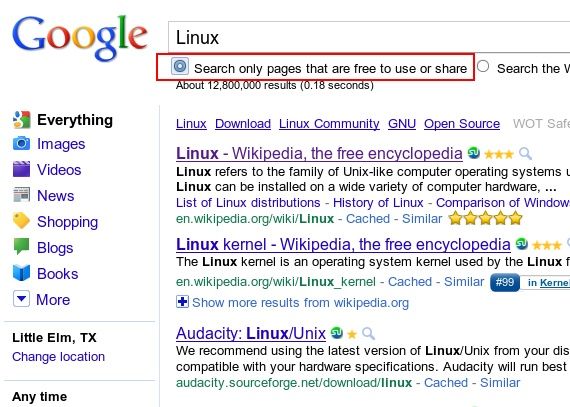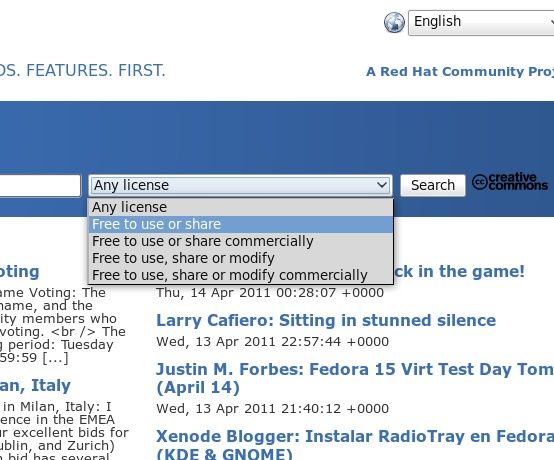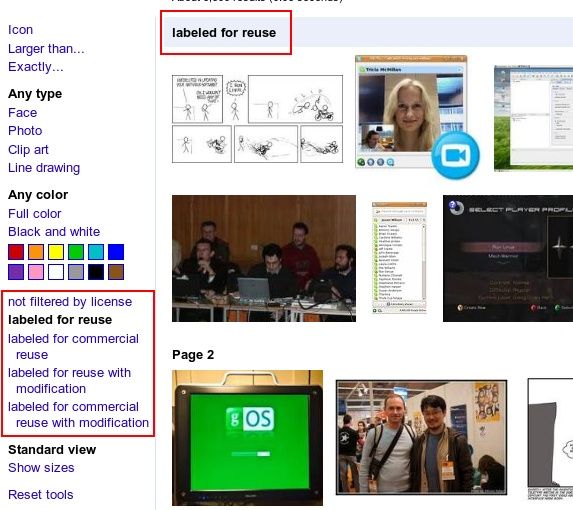Creative Commons content isn't always as easy to find as you think. In fact, most things that you find and copy are copyrighted in a way that makes it illegal to copy it without asking the owner for permission. However, the Creative Commons license can help you with that and make you feel better as a person by being a good citizen of the internet.
Why Creative Commons?
If you've ever looked into open source (or any of my posts for that matter), you'll know that it's free software. This means both free as in beer and free as in the freedom of speech. Most commonly, open source programs are licensed under the GPL, or GNU Public License. What this license does is let anyone legally read the source code, change it to fit their needs, and distribute it to anyone whom they wish. This is great because it fosters innovation, sharing, and true security. Instead of hiding the source code in hopes that hackers won't find a hole in the code when they can't see the code, open source programs do the opposite. They offer their code freely and let anyone study it for security flaws, which can then be fixed. Once a hole is found, the open source nature will force the developers to fix the hole, since as soon as it's found anyone can take advantage of it. This also reduces the amount of wait time for a patch to be released.
However, you can't "open source" content such as pictures, music/sounds, videos, and written content. Instead, the Creative Commons license was made to be similar to the GPL, but applicable to content instead of software. There are different variations of the Creative Commons license which have different permissions. It can let you use and share the content freely. Another variation lets you do the same plus modify it freely. Then there are also variations that do the same, but with allowance for commercial use.
How to Find It
Finding Creative Commons content is easy if you know what you're doing, but Google makes it hard to find the settings. So it's maybe a good idea if you follow these directions once and then make a bookmark.
Whenever you go search for something, you'll wind up with a URL in your address bar like this:
http://www.google.com/search?q=Linux
Now what you simply need to do is add this part to the end of it:
&as_rights=(cc_publicdomain|cc_attribute|cc_sharealike|cc_noncommercial|cc_nonderived)
So when you copied it to the end, your URL should look like this:
http://www.google.com/search?q=Linux&as_rights=(cc_publicdomain|cc_attribute|cc_sharealike|cc_noncommercial|cc_nonderived)
What that extra snippet of information does is tells Google to search for Creative Commons licensed content that you can freely use or share. There are other combinations of snippets that search for different variations of the license, but this one should be good enough for most people.
If you want an easier way to do all of this, as well as have a menu to search for a specific variation of the license, I suggest you use the search field on the Fedora Project's start page.
Searching for CC Images
What if you want to look for images with the Creative Commons license? For this you must use the method I described earlier, else nothing is going to work for you. There may be a different search engine that could do the same, but then you wouldn't be using Google anymore.
Once you go ahead, search for an image, add the snippet to the end, and hit enter, you'll be looking for the images you want. Contrary to regular web search for Creative Commons content, if you go all the down in the left side panel, you'll find a few new search options, one for each variation of the Creative Commons license!
I've also tried doing the same with video results, and although Google doesn't barf when you add the snippet to the end, you won't be returned any results, and it'll suggest results that aren't under a Creative Commons license. Maybe Google can fix that someday.
Conclusion
Using the power of Google to find content that you can legally use is a lifesaver in a world where lawsuits are popping up ever more often. Although it is more than likely that there are other sites that do the same, Google is still one heck of a search engine and it's wise to use its power when you have access to it.
Now that you know how to find Creative Commons content, are you more likely to do so now? Are there any activities that you do where using Creative Commons content would be helpful? Let us know in the comments!




